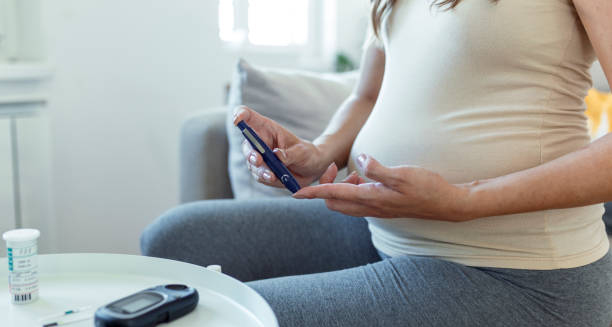Diagnosis of Diabetes in Pregnancy
Diagnosis of diabetes in pregnancy is essential to ensure the health of both mother and baby. Early identification of diabetes in pregnancy allows for timely interventions that reduce the risk of complications such as high birth weight, premature birth, and birth trauma. Screening is especially important because gestational diabetes often develops without obvious symptoms.
Routine Screening
All pregnant women are typically screened between 24 and 28 weeks of gestation, although those with risk factors may be tested earlier. These risk factors include:
Being overweight or obese
Family history of Type 2 diabetes
Previous gestational diabetes
Polycystic ovary syndrome (PCOS)
Advanced maternal age (over 35)
Having previously delivered a baby over 4 kg
Oral Glucose Tolerance Test (OGTT)
The most common method for diagnosing diabetes in pregnancy is the OGTT:
The test begins with a fasting blood sugar check after an overnight fast
The woman then drinks a sugary solution
Blood sugar levels are measured at 1 and 2 hours after consumption
Gestational diabetes is typically diagnosed if:
Fasting glucose is ≥ 5.1 mmol/L
1-hour reading is ≥ 10.0 mmol/L
2-hour reading is ≥ 8.5 mmol/L
Only one elevated reading is needed to confirm the diagnosis.
Alternative Testing
In some regions, a glucose challenge test (GCT) is used as a preliminary screening. If results are abnormal, it is followed by an OGTT for confirmation.
Monitoring After Diagnosis of Diabetes in Pregnancy
If diabetes in pregnancy is diagnosed:
Blood sugar levels must be regularly monitored, usually with a home glucometer
Readings are typically taken fasting and after meals
HbA1c is not routinely used during pregnancy as it does not reflect rapid changes in glucose levels
Additional Tests
Ultrasound scans help monitor foetal growth and check for excessive amniotic fluid
Urine tests detect ketones or protein, which can indicate poor control or pre-eclampsia
Importance of Early Diagnosis
Enables dietary adjustments and glucose monitoring before complications arise
Reduces the risk of miscarriage, stillbirth, and neonatal hypoglycaemia
Supports planning for safe delivery and postnatal follow-up
In conclusion, diagnosis of diabetes in pregnancy is a critical step in protecting maternal and foetal health. Universal screening and consistent monitoring help ensure better outcomes for both mother and child.
[Next: Treatment of Diabetes in Pregnancy →]


